Young People in Peru Are Protesting to Protect Democracy
Indigenous community members, farmworker coalitions, and students have taken to the streets. “Right now, we are calling for Dina Boluarte to leave power, and for new congressional elections.”
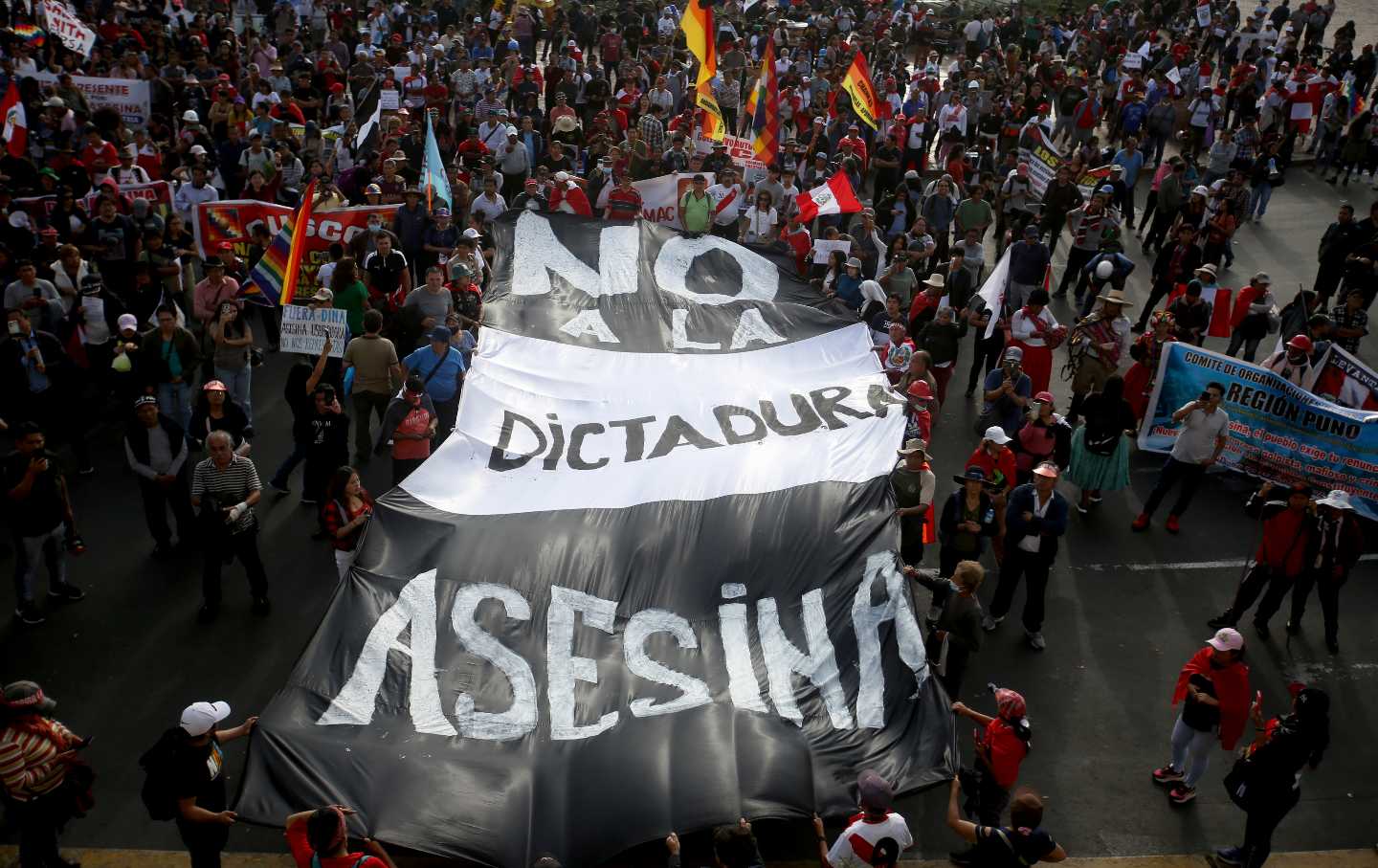
People protest against interim President Boluarte on Independence Day.
(Gian Masko / Getty)Peru is facing a democratic crisis. In December of last year, then-President Pedro Castillo, facing a third impeachment vote, attempted to dissolve Congress and institute authoritarian rule. Congressional lawmakers responded by voting to remove him from office on charges of “rebellion.”
The fifth president in less than five years, Castillo ran at a time of deepening instability and increasing antagonism between the executive branch and Congress. Trust in the Peruvian government has declined since 2017. Within the first year of his presidency, Castillo faced at least 13 different criminal and civil investigations, and became the first president in history to face an inquiry from the attorney general.
Omar Coronel, a political science professor at Lima’s University of the Pacific, described Castillo’s coup attempt as an act of desperation, emblematic of Castillo’s fragile hold on power. “Castillo lacked the support of the business sector, the armed forces, and even his own party. Even the left turned their back on him. When Castillo attempted his self-coup, nobody supported him.”
Hours after Castillo declared his self-coup, he was deposed and imprisoned, and his vice president, Dina Boluarte, who had run on his same ticket, was quickly sworn in. Coronel and others saw her presidency as a transitional period that would allow for new elections—a new nationwide referendum on where the country should head. “Many, including myself, thought it was legitimate for Dina Boluarte to assume the presidency and fulfill the popular mandate that the time demanded,” said Coronel. “The only thing that could be done in this circumstance was to immediately call for new elections.”
But instead of calling for new elections, Boluarte allied herself with right-wing factions. Formerly a member of Castillo’s leftist “Free Peru” party, Boluarte was cast out over a personal disagreement with another member in January 2022. “She governed with the extreme right—the bloc that lost the 2021 elections,” said Coronel.
“It’s clear that Boluarte was merely a member of [Peru Libre] in name only, and never had a firm ideological foundation,” said Willian Joseph Huamanojeda, a student representative at the University of San Antonio in Cusco. “Now that she is in power, she has displayed a different kind of conduct.”
Boluarte’s power grab sparked protests in Lima that radiated southward, to cities like Puno, Arequipa, and Cusco, where Castillo continued to have a dedicated base of support especially among young people. Unions who had supported Castillo’s presidency—including the Workers General Confederation of Peru, the largest in the country—saw its members take to the streets in protest. They were joined by Indigenous community members, farmworker coalitions, and tens of thousands of other concerned citizens.
United by a platform calling for a renunciation of Boluarte, a closure of Congress, and new elections, these protests were met with military force. In July, over 20,000 police officers were deployed. Boluarte labeled protesters “terrorists,” inflaming tensions and bringing more groups to the streets, including members of various university student organizations.
On January 9, in what became known as the Juliaca Massacre, police killed 17 protesters who had attempted to enter the local airport. “That a government can kill 14 people, adults, women, men, even minors, I think that has been a definitive example of the human rights violations in our country,” said Huamanojeda.
An Amnesty International report found that between December of 2022 and February of 2023, at least 49 demonstrators’ deaths could be attributed to police. The report found that police used live ammunition to disperse protesters. Although they make up only 13 percent of the total population, 80 percent of these reported deaths were Indigenous people.
As we approach the first anniversary of Boluarte’s presidency, international coverage of the country’s growing social movement has noticeably lessened. Boluarte and her congressional allies have steadily chipped away at democratic institutions, most notably through efforts to curtail judicial independence and to gut higher-education accreditation.
However, young people in the country’s Indigenous capital, Cusco, have continued to organize. Relying on Facebook and WhatsApp, members of the Cusco University Federation, an independent student union with more than 20,000 members, have found a renewed voice months after the initial wave of protests. “Right now, we are calling for Dina Boluarte to leave power, and for new congressional elections,” said Kelyn Leonela Labra Panocca, a history student and president of the Cusco University Federation.
Popular
“swipe left below to view more authors”Swipe →“The Boluarte administration has attacked higher education,” said Panocca, referring to Boluarte’s support of a bill eviscerating the power of the Superintendencia Nacional de Educación Superior Universitaria, the university watchdog and accreditation board. In August, Peru’s Supreme Court found the law constitutional, allowing it to go into effect immediately. “The scenario of conflict they have created in this country undermines the freedom of expression of my colleagues.”
Labra Panocca grew up in the rural indigenous community of Espinar, a community that has been devastated by toxic heavy metals mining in the region. She emphasized that while her current work is focused on protesting the Boluarte government, her underlying activism is rooted in environmental justice for communities like hers. “I feel very responsible for the lives that were lost in these protests. I feel the pain of their families.”
Located 150 miles south of Cusco, Espinar has disproportionate levels of cancers and other illnesses linked to heavy metal exposure. Peru has one of the world’s largest reserves of precious metals, including copper, silver, and gold, which are the subject of significant international attention as the demand for electric vehicle batteries surges.
“The water is contaminated with toxic metals there, and everyone drinks the water, including the animals. This makes everyone sick. Until very recently, the government has denied this problem exists,” said Alejandro Villar, a defense lawyer with Human Rights Without Borders, a legal services organization that specializes in assisting communities in Southern Peru affected by mining. Peru’s own Ministry of Health has estimated that at least 10 million, or around one-third of the country, are at risk of heavy metal exposure, including lead, cadmium, arsenic, mercury, and manganese, byproducts of these extractive industries.
Villar added that the mineral industry, which is controlled by just a few companies, operates with legal impunity in these rural areas. Heavy metals have leached out into the community and led to numerous instances of poisonings. “The government is not addressing the issue of people’s needs, but even more serious is the pollution of water, soil, and air.”
The environmental injustice impacting rural Peruvians, many of whom are Indigenous, contributed to the protests. “The government has had a presence in these communities, but only in a negative sense,” said Villar. “They have primarily been concerned with ensuring that the mineral industry can continue to do business.”
There’s a long history of this persecution. The criminalization of social protests has continually been used by the government since the era of Alberto Fujimori. Ruling from 1990–2000, Fujimori’s government faced numerous allegations of human rights abuses, and Fujimori himself is serving a 25-year prison sentence for his establishment of a death squad that killed 25 people.
Boluarte seems to be following Fujimori’s pro-business strategy. She has appointed business-friendly members to her cabinet, including Energy and Mines Minister Oscar Vera, the ex-manager of the state-owned oil company. Her administration continues to push fossil fuel developments—recently announcing plans for a new privately funded oil refinery in the South; this comes less than two years after the notorious Callao Oil spill outside of Lima, which saw at least 12,000 barrels of crude oil leak into the Pacific Ocean. A poll from July found that more than two-thirds of CEOs supported her presidency, while just 12 percent of the general population said the same.
Despite Peru’s facing an unstable political situation, there is hope emerging in the rural south. “What we’re seeing in Peru is something historic. For a long time, we haven’t seen so many indigenous communities who have been historically discriminated against finding a new voice to represent themselves,” said Lilliana Peña, a field organizer for Human Rights Without Borders.
Boluarte, Peru’s first woman president, is governing at a time when femicides and instances of violence against women in the country are increasing: 76 have been officially reported this year as of early July, which would outpace the 137 reported in 2022. Yet these numbers tell only part of the story. From January to April of this year, at least 3,000 women have been reported missing in Peru, with just over half of them being reported found. “Environmental and human health issues are often carried by women. When the water becomes turbid, when animals become ill, when family members become sick, who notices it first? Women, because they are the ones who take care of household chores,” said Peña.
On July 28, in a sign of further creeping authoritarianism, Boluarte, in the annual Independence Day speech, called on Congress to grant her additional executive power for 120 days “to confront crime and delinquency with greater severity and efficiency.” She also directed a message at protesters who had been killed or injured, pleading for forgiveness, and acknowledging the pain that her administration caused. “We do not accept that apology, since on July 28, students and others mobilized and were repressed by the police,” said Labre Panocca. “Likewise, in Cusco, an artist was removed from teaching.” In August, professor César Aguilar was fired from a public art college in Cusco after constructing an effigy mocking Boluarte. “This is repression and persecution.”
In a bid to appease some of her most ardent adversaries in rural areas, Boluarte promised billions in infrastructure investments to expand the country’s health care system, addressing at least “57 stalled hospital projects.” Yet, with such a low public approval rating, it remains unclear how the public will react to these promises. “These projects are mere words because there is a lack of stable governance and an economic recession,” said Labra Panocca.
But amid this turmoil, Labra Panocca continues to hope. “We are continually motivated because we cannot leave behind rural communities who have been the most affected, and for others in the general population, who have grievances to voice, yet are afraid to come out and protest.”
More from The Nation
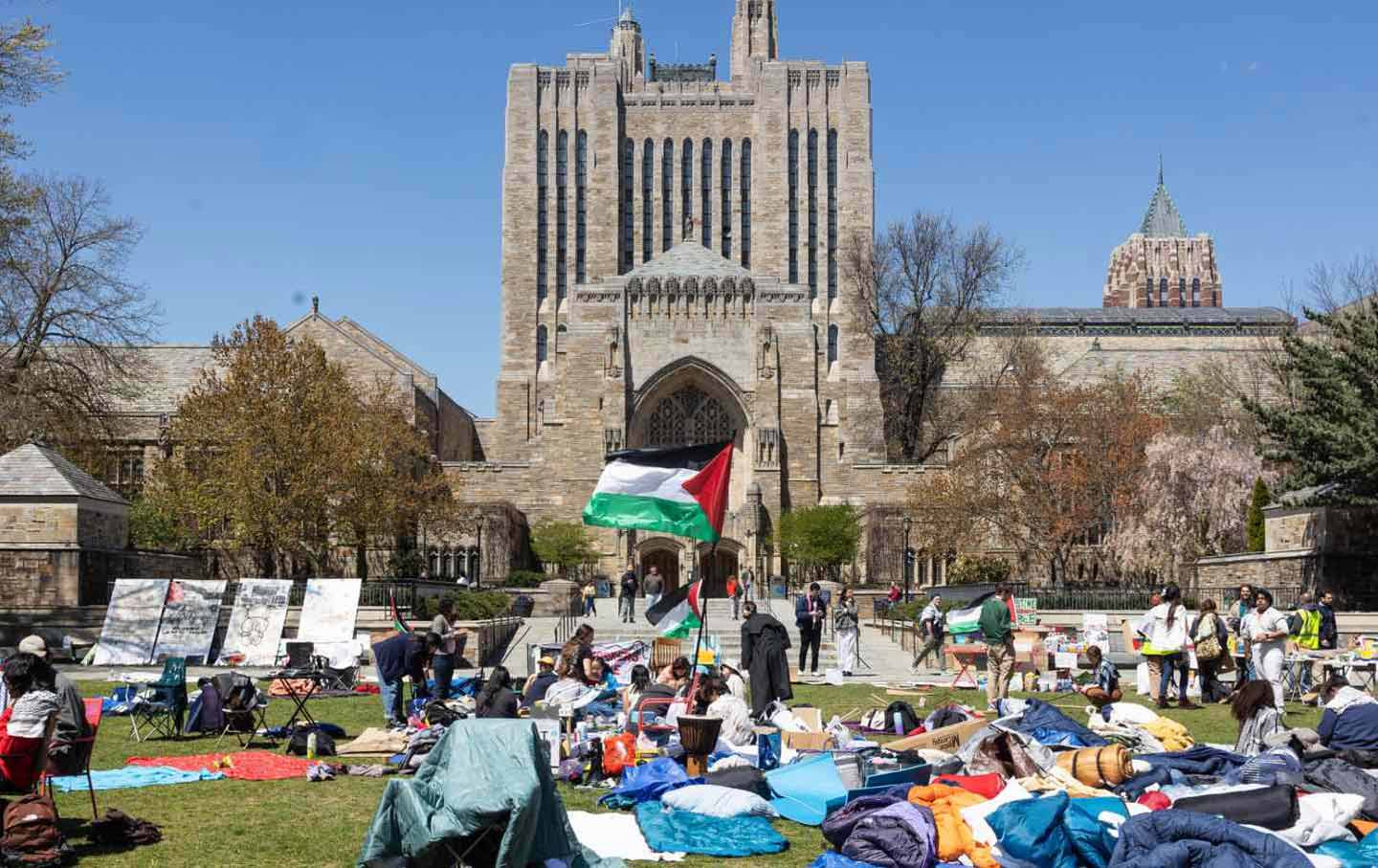
Yale Students Voted to Divest, but What’s Next is Unclear Yale Students Voted to Divest, but What’s Next is Unclear
The referendum calls on the school to divest its $41 billion endowment from military weapons manufacturing firms, yet the power to do so is in the hands of the board of trustees.
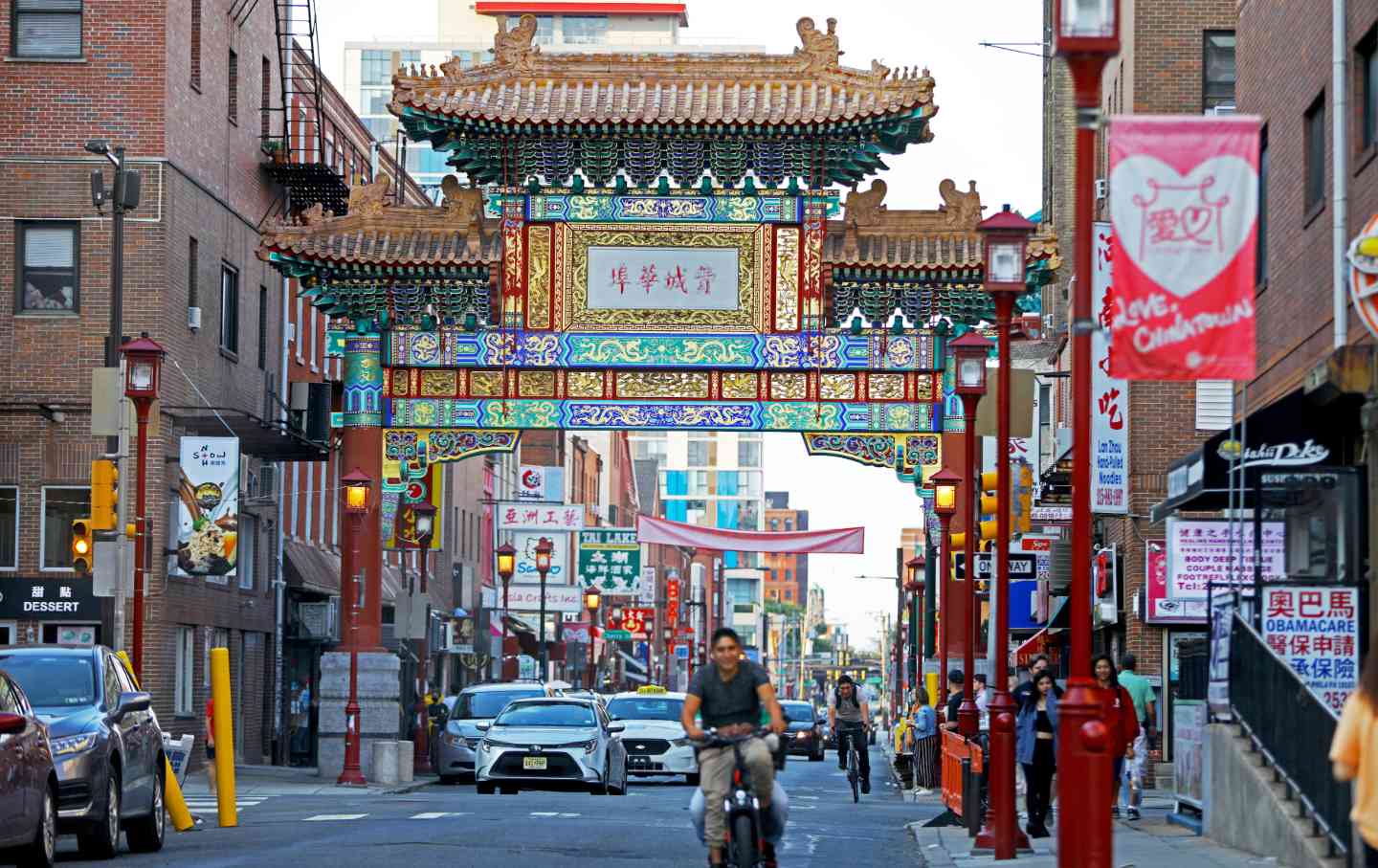
The “Save Chinatown” Coalition Goes on the Defensive in Philadelphia The “Save Chinatown” Coalition Goes on the Defensive in Philadelphia
The construction of a new basketball arena threatens to fill the neighborhood with more traffic and raise rents.

Human Rights for Everyone Human Rights for Everyone
December 10 is Human Rights Day, commemorating the anniversary of the Universal Declaration of Human Rights (UDHR), one of the world's most groundbreaking global pledges.
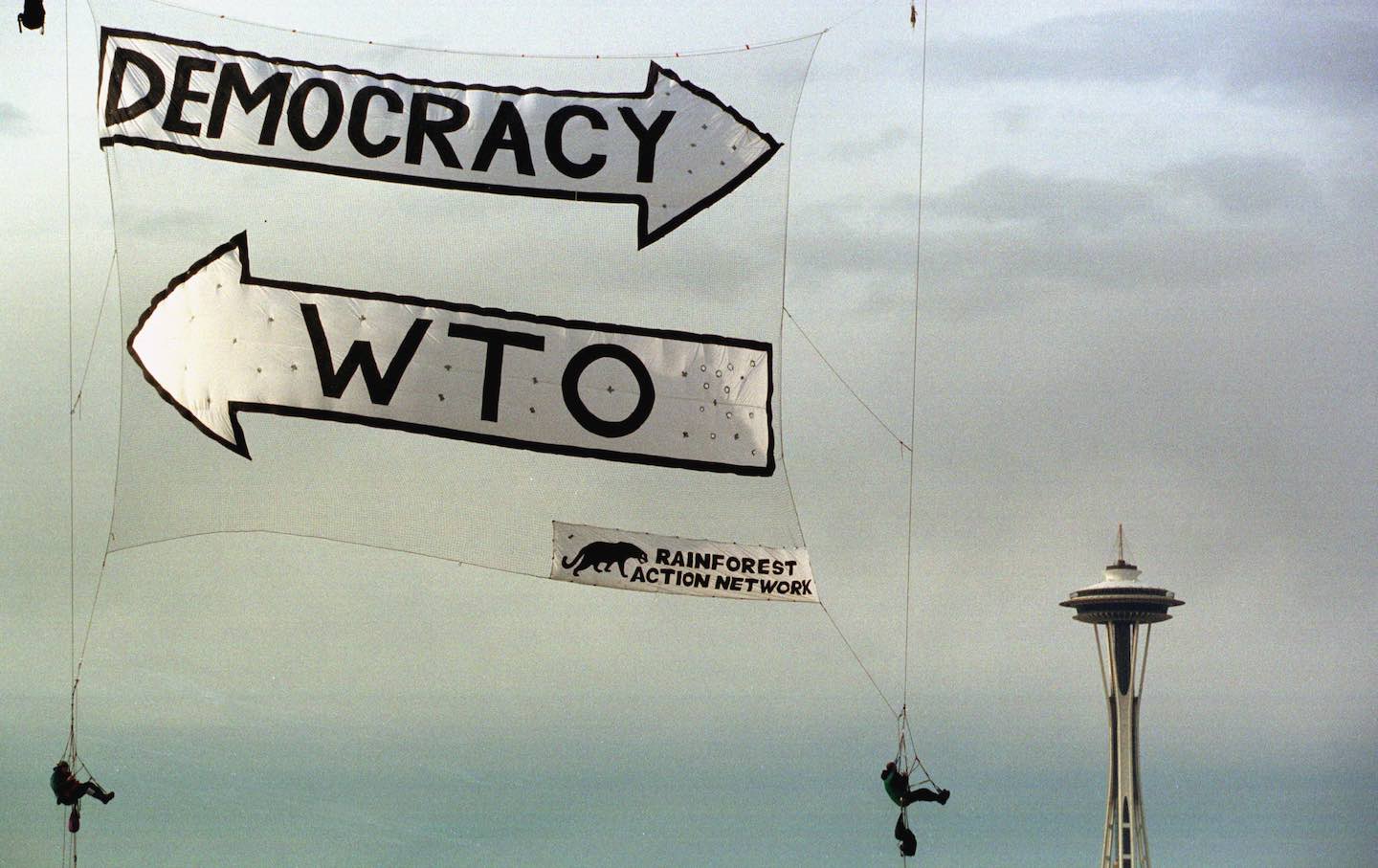
25 Years Ago, the Battle of Seattle Showed Us What Democracy Looks Like 25 Years Ago, the Battle of Seattle Showed Us What Democracy Looks Like
The protests against the WTO Conference in 1999 were short-lived. But their legacy has reverberated through American political life ever since.
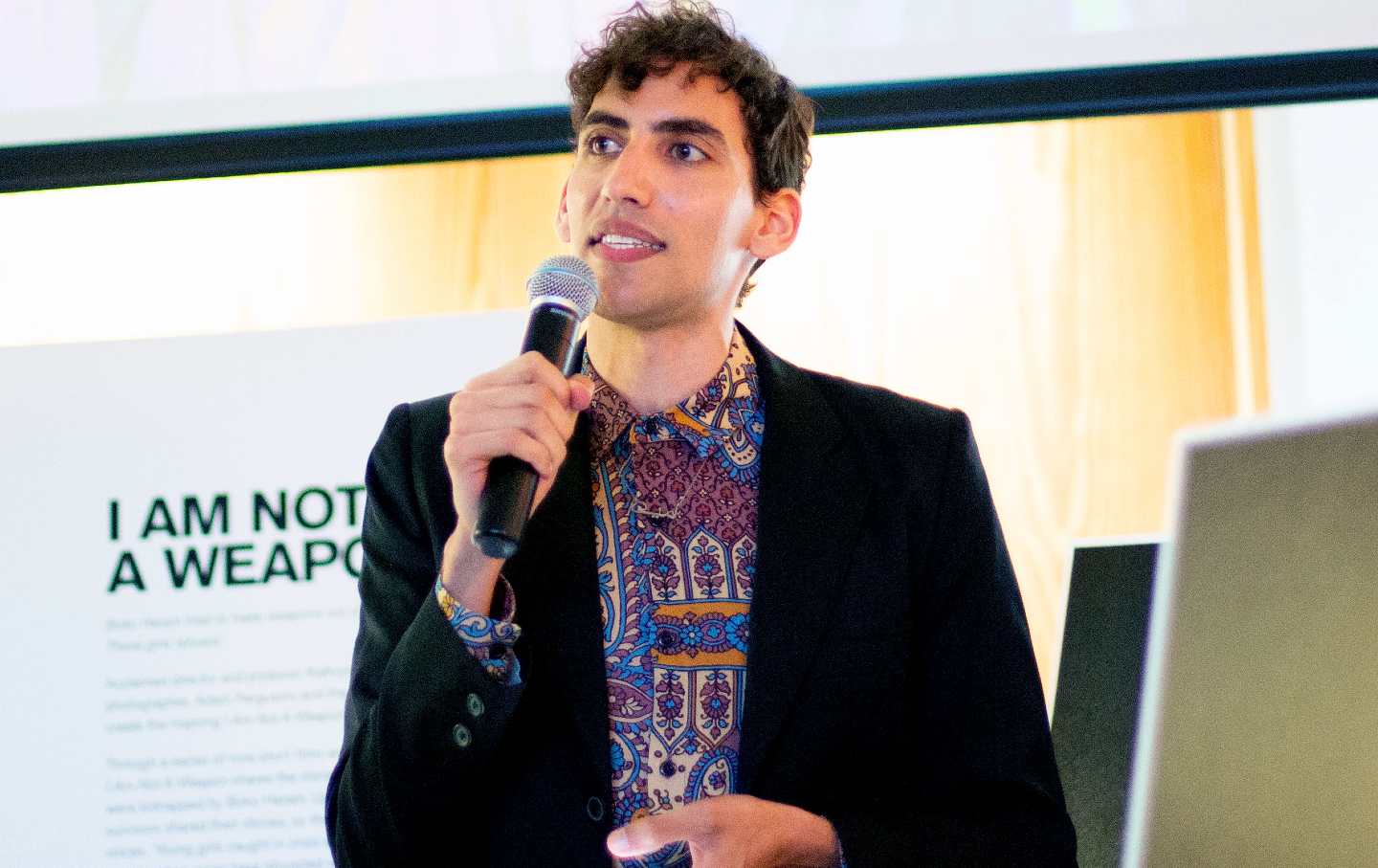
Hollywood’s Vocal Actors Union Goes Silent on a Gaza Ceasefire Hollywood’s Vocal Actors Union Goes Silent on a Gaza Ceasefire
Amin El Gamal, head of SAG-AFTRA's committee on Middle Eastern and North African members, has advocated for a statement supporting a ceasefire in Gaza—so far without success

The Mirabal Sisters The Mirabal Sisters
Patria, Minerva, and María Teresa Mirabal were sisters from the Dominican Republic who opposed the dictatorship of Rafael Trujillo; they were assassinated on November 25, 1960, und...


